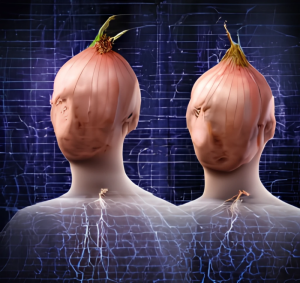
According to I2P’s website, it offers consumers anonymity and privacy.
According to the I2P website, it offers consumers anonymity and privacy. It is a network layer that enables apps to communicate with one another anonymously and securely. The network also supports anonymous hosting services known as “eepSites.” Because these sites are housed on computers all over the world, they are difficult to shut down by law enforcement or even governments because there is no single central server location. For all communication, I2P employs end-to-end encryption. This implies that data is encrypted from one user to the next, making decoding the data more difficult for hackers.
Tor’s website says that it is a service for anonymizing traffic.
Tor’s website describes it as a service for traffic anonymization. I2P is also a service that provides users with anonymity and privacy by encrypting data.
Both of them provide anonymous access to the dark web.
I2P and Tor are both utilized to get access to the dark web, which is a network of websites that cannot be located by standard search engines. I2P and Tor are both pieces of software that allow users to access the internet anonymously. They do, however, function differently: although Tor is a program, I2P is a network layer that may be used in combination with other apps (such as browsers).
I2P and Tor have comparable processes but use different approaches to accomplishing this aim.
Tor and I2P are both privacy solutions that enable users to surf the web anonymously. Both function by encrypting your data, but they tackle this goal in quite different ways. I2P employs end-to-end encryption in all of its communications, which means that data is encrypted from one user to the next, making it more difficult for hackers to decipher the data.
Tor also employs end-to-end encryption, but only on its relay nodes (Tor relays), which means that if someone gains access to those relays, they may be able to decode your communication before it reaches its destination.
For all communication, I2P employs end-to-end encryption. This implies that data is encrypted from one user to the next, making decoding the data more difficult for hackers.
Tor employs the Onion Routing technology, which conceals your IP address by routing data via other servers known as “nodes”. It lacks the security of I2P since it does not encrypt user data. If hackers know who you are and where you are, they may be able to clone your identity using Tor. They might then use this information to break into your personal devices and steal your personal information, such as banking passwords or social network passwords.
Tor is a free browser that allows for anonymous communication. The term is an abbreviation for “The Onion Router,” which employs many layers of encryption to anonymize internet users’ online traffic.
Tor routes Internet data through a network of nodes managed by volunteers all around the world, making it difficult for anybody monitoring your connection to determine where you are coming from or going next (although not impossible). Tor, in addition to enabling online anonymity, also allows access to information that would otherwise be restricted in some countries owing to censorship laws—though this can occasionally include criminal content!
Both services offer excellent privacy, but I2P offers stronger encryption than Tor
Both systems provide good anonymity, although I2P’s encryption is stronger than Tor’s. For all communication, I2P employs end-to-end encryption. This implies that data is encrypted from one user to the next, making decoding the data more difficult for hackers.
Conclusion
The decision is ultimately yours. Both I2P and Tor are excellent solutions for online privacy protection, but each has advantages and disadvantages. I2P has greater encryption than Tor, so if this is important to you, it may be worth investigating. However, if you do not want strong encryption, Tor may be a better choice because it is easier to use than other VPN services such as OpenVPN.
Further reading:
Figueras-Martín, E., Magán-Carrión, R., & Boubeta-Puig, J. (2022). Drawing the web structure and content analysis beyond the Tor darknet: Freenet as a case of study. Journal of Information Security and Applications, 68, 103229.
Höller, T., Roland, M., & Mayrhofer, R. (2022). Evaluating dynamic tor onion services for privacy preserving distributed digital identity systems. Journal of Cyber Security and Mobility, 141-164.
